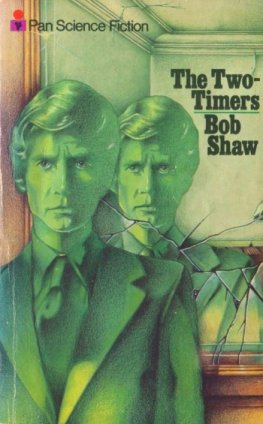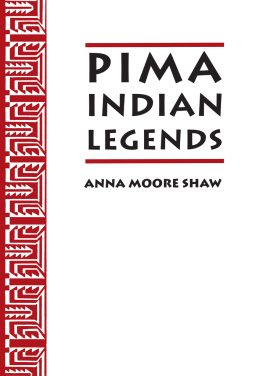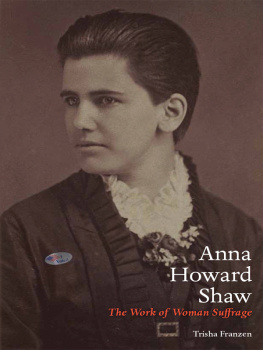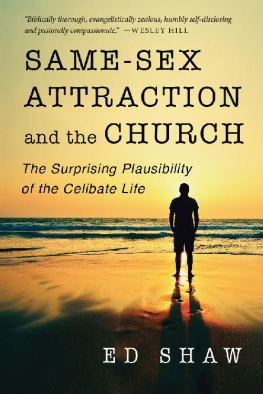I. First Memories
My father's ancestors were the Shaws of Rothiemurchus, in Scotland, and the ruins of their castle may still be seen on the island of Loch-an-Eilan, in the northern Highlands. It was never the picturesque castle of song and story, this home of the fighting Shaws, but an austere fortress, probably built in Roman times; and even to-day the crumbling walls which alone are left of it show traces of the relentless assaults upon them. Of these the last and the most successful were made in the seventeenth century by the Grants and Rob Roy; and it was into the hands of the Grants that the Shaw fortress finally fell, about 1700, after almost a hundred years of ceaseless warfare.
It gives me no pleasure to read the grisly details of their struggles, but I confess to a certain satisfaction in the knowledge that my ancestors made a good showing in the defense of what was theirs. Beyond doubt they were brave fighters and strong men. There were other sides to their natures, however, which the high lights of history throw up less appealingly. As an instance, we have in the family chronicles the blood-stained page of Allen Shaw, the oldest son of the last Lady Shaw who lived in the fortress. It appears that when the father of this young man died, about 1560, his mother married again, to the intense disapproval of her son. For some time after the marriage he made no open revolt against the new-comer in the domestic circle; but finally, on the pretext that his dog had been attacked by his stepfather, he forced a quarrel with the older man and the two fought a duel with swords, after which the victorious Allen showed a sad lack of chivalry. He not only killed his stepfather, but he cut off that gentleman's head and bore it to his mother in her bedchamberan action which was considered, even in that tolerant age, to be carrying filial resentment too far.
Probably Allen regretted it. Certainly he paid a high penalty for it, and his clan suffered with him. He was outlawed and fled, only to be hunted down for months, and finally captured and executed by one of the Grants, who, in further virtuous disapproval of Allen's act, seized and held the Shaw stronghold. The other Shaws of the clan fought long and ably for its recovery, but though they were helped by their kinsmen, the Mackintoshes, and though good Scotch blood dyed the gray walls of the fortress for many generations, the castle never again came into the hands of the Shaws. It still entails certain obligations for the Grants, however, and one of these is to give the King of England a snowball whenever he visits Loch-an-Eilan!
As the years passed the Shaw clan scattered. Many Shaws are still to be found in the Mackintosh country and throughout southern Scotland. Others went to England, and it was from this latter branch that my father sprang. His name was Thomas Shaw, and he was the younger son of a gentlemana word which in those days seemed to define a man who devoted his time largely to gambling and horse-racing. My grandfather, like his father before him, was true to the traditions of his time and class. Quite naturally and simply he squandered all he had, and died abruptly, leaving his wife and two sons penniless. They were not, however, a helpless band. They, too, had their traditions, handed down by the fighting Shaws. Peter, the older son, became a soldier, and died bravely in the Crimean War. My father, through some outside influence, turned his attention to trade, learning to stain and emboss wallpaper by hand, and developing this work until he became the recognized expert in his field. Indeed, he progressed until he himself checked his rise by inventing a machine that made his handwork unnecessary. His employer at once claimed and utilized this invention, to which, by the laws of those days, he was entitled, and thus the cornerstone on which my father had expected to build a fortune proved the rock on which his career was wrecked. But that was years later, in America, and many other things had happened first.
For one, he had temporarily dropped his trade and gone into the flour-and-grain business; and, for another, he had married my mother. She was the daughter of a Scotch couple who had come to England and settled in Alnwick, in Northumberland County. Her father, James Stott, was the driver of the royal-mail stage between Alnwick and Newcastle, and his accidental death while he was still a young man left my grandmother and her eight children almost destitute. She was immediately given a position in the castle of the Duke of Northumberland, and her sons were educated in the duke's school, while her daughters were entered in the school of the duchess.
My thoughts dwell lovingly on this grandmother, Nicolas Grant Stott, for she was a remarkable woman, with a dauntless soul and progressive ideas far in advance of her time. She was one of the first Unitarians in England, and years before any thought of woman suffrage entered the minds of her country-women she refused to pay tithes to the support of the Church of Englandan action which precipitated a long-drawn-out conflict between her and the law. In those days it was customary to assess tithes on every pane of glass in a window, and a portion of the money thus collected went to the support of the Church. Year after year my intrepid grandmother refused to pay these assessments, and year after year she sat pensively upon her door-step, watching articles of her furniture being sold for money to pay her tithes. It must have been an impressive picture, and it was one with which the community became thoroughly familiar, as the determined old lady never won her fight and never abandoned it. She had at least the comfort of public sympathy, for she was by far the most popular woman in the countryside. Her neighbors admired her courage; perhaps they appreciated still more what she did for them, for she spent all her leisure in the homes of the very poor, mending their clothing and teaching them to sew. Also, she left behind her a path of cleanliness as definite as the line of foam that follows a ship; for it soon became known among her protegees that Nicolas Stott was as much opposed to dirt as she was to the payment of tithes.
She kept her children in the schools of the duke and duchess until they had completed the entire course open to them. A hundred times, and among many new scenes and strange people, I have heard my mother describe her own experiences as a pupil. All the children of the dependents of the castle were expected to leave school at fourteen years of age. During their course they were not allowed to study geography, because, in the sage opinion of their elders, knowledge of foreign lands might make them discontented and inclined to wander. Neither was composition encouragedthat might lead to the writing of love-notes! But they were permitted to absorb all the reading and arithmetic their little brains could hold, while the art of sewing was not only encouraged, but proficiency in it was stimulated by the award of prizes. My mother, being a rather precocious young person, graduated at thirteen and carried off the first prize. The garment she made was a linen chemise for the duchess, and the little needlewoman had embroidered on it, with her own hair, the august lady's coat of arms. The offering must have been appreciated, for my mother's story always ended with the same words, uttered with the same air of gentle pride, "And the duchess gave me with her own hands my Bible and my mug of beer!" She never saw anything amusing in this association of gifts, and I always stood behind her when she told the incident, that she might not see the disrespectful mirth it aroused in me.










